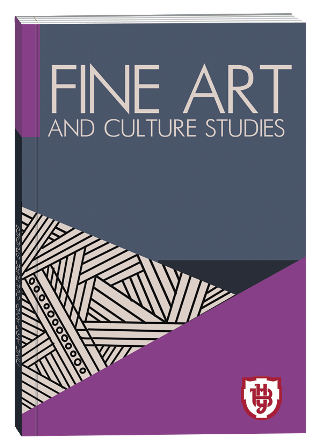UNITY OF CULTURE AND EDUCATION: PHILOSOPHICAL AND CULTURAL ASPECT
DOI:
https://doi.org/10.32782/facs-2024-1-29Keywords:
education, culture, spirituality, spiritual culture, spiritual development of the mankind, moral values, humanism, humanity, cultural creativity, art, personality, worldview, worldview culture.Abstract
When raising the question of ways and means of qualitatively improving the level of education in our young Ukrainian state, we must realize that this level will ultimately be determined by the level of mastery of general and national culture in the process of education and training.After all, the amount and depth of knowledge and even developed creative abilities mean little if the subjects of this knowledge do not have high culture, higher spiritual needs and interests, and service to the Good.We have to build our education in such a way that it prepares not only highly educated but also highly cultured citizens. This is required not only by the conditions of our modern national, but also world-historical existence, where, despite the unprecedented development of scientific knowledge and professional education, there is a deep decline in spiritual and cultural values.The merciless destruction of the natural ecology is accompanied by the same destruction of the “cultural ecology”, the growth of the criminal world, consumer parasitism, moral cynicism, drug addiction, etc. (Kremin, 2008) The aim of this article is to highlight the ontological content of culture, to analyse the specifics of educational activity as a content and essential component of culture, to educate nationally conscious, spiritually rich individuals with a high level of cultural and educational competence, ready to respond immediately to the latest cultural, educational, informational and professional challenges. Scientific novelty. Culture and education are studied as a philosophical and cultural problem. A holistic vision of education as a complex, universal, multilevel cultural phenomenon is substantiated and emphasized. The evolution of educational activity in the context of cultural development is comprehended. The role of culture in the structure and content of worldview education is determined. The conclusion notes the need to develop the skills of cultural analysis of education, its structural and functional characteristics on the basis of a thorough study of cultural and historical sources and scientific literature. The author emphasises the content of the leading philosophical and cultural concepts of educational activity, the socio-cultural purpose and nature of the functioning of the educational institution, the socio-cultural foundations of social life and specifics of socio-cultural regulation of human life.
References
Арцишевський Р. На шляху до загальнолюдського світогляду. Шлях освіти. 2011. №1. С. 17–20.
Арцишевський Р. А. Духовне осягнення дійсності: Монографія. Луцьк: Смарагд. 2011. 272 с.
Гірник А. М., Саламатов В. О. Духовність у період кризи. Людина у період кризи. К. 1996. Т. 5.
Есхіл. Трагедії. К. 1990.
Культура життя особистості. К. 1988.
Людина і світ людини. К. 1989.
Мистецтво життєтворчості особистості: Наук.-метод. посібник: у 2 ч. В. М. Доній, Г. М. Несен, Л. В. Сохань, І. Г. Єрмаков та ін. К. 1997. Ч. 1: Теорія і технологія життєтворчості. 392 с.
Пупар П. Церква і культура. Мілан. 1995.
Сковорода Григорій. Поезії. Байки. Трактати. Діалоги. Твори: У 2 т. К. 1994. Т. 1.
Феномен інновації: освіта, суспільство, культура. За ред. В. Г. Кременя. К.: Педагогічна думка. 2008. 472 c.







